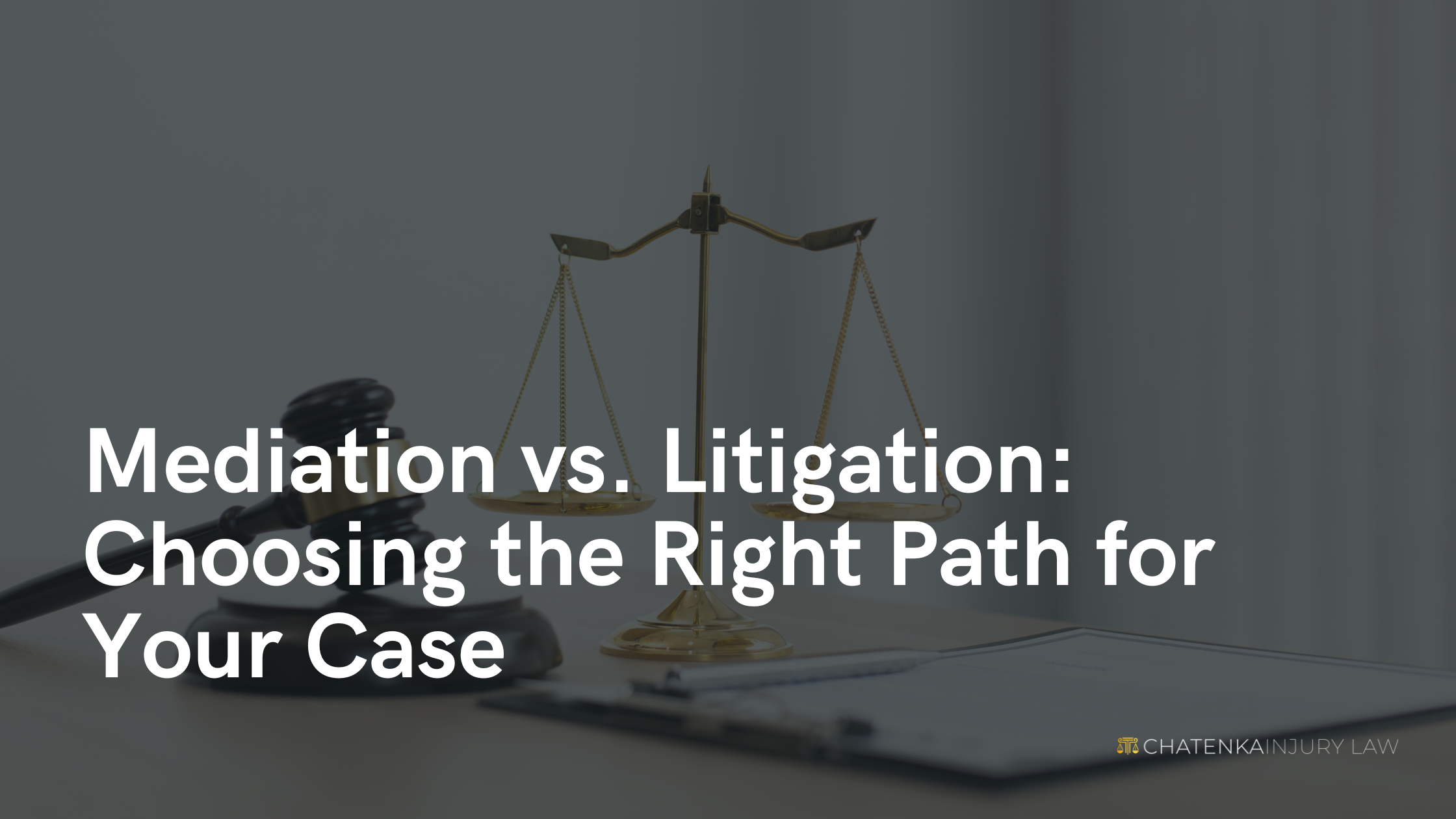Mediation vs. Litigation: Choosing the Right Path for Your Case
In the realm of legal disputes, parties often find themselves at a crossroads, unsure whether to pursue mediation or litigation. While both avenues aim to resolve conflicts, they differ significantly in approach and outcomes. In this article, we delve into the intricacies of mediation and litigation, shedding light on their respective pros, cons, and suitability for various cases.
Understanding Mediation
Mediation is a voluntary, confidential process where parties in dispute work with a neutral mediator to reach a mutually acceptable resolution. Unlike litigation, which involves a judge or jury imposing a decision, mediation empowers the parties to actively participate in crafting a solution. This collaborative approach fosters open communication, preserves relationships, and often leads to faster, less costly outcomes.
Advantages of Mediation
Flexibility: Mediation offers flexibility in terms of scheduling sessions and tailoring solutions to meet the parties' unique needs and interests.
Confidentiality: Unlike courtroom proceedings, mediation discussions are confidential, allowing parties to explore creative solutions without fear of public disclosure.
Preserves Relationships: By fostering constructive dialogue and cooperation, mediation helps preserve relationships that may otherwise be strained by adversarial litigation.
Cost-Effectiveness: Generally, mediation is less expensive than litigation, as it involves fewer procedural formalities and typically concludes more swiftly.
Considerations for Mediation
While mediation offers numerous benefits, it may not be suitable for every case. Factors to consider include the complexity of the issues involved, the willingness of parties to negotiate in good faith, and the need for a binding decision. Additionally, cases involving power imbalances, extreme emotions, or a history of abuse may not be conducive to successful mediation.
Understanding Litigation
Litigation, on the other hand, involves presenting arguments and evidence in a formal courtroom setting before a judge or jury. The decision-making authority rests with the court, which issues a binding judgment or verdict based on applicable laws and legal precedent. Litigation is often more adversarial and structured than mediation, with each party advocating for their interests through legal representation.
Advantages of Litigation
Binding Decisions: In litigation, the court's decision is legally binding, providing certainty and finality to the outcome.
Legal Protection: Litigation ensures parties' rights are protected under the law, with procedural safeguards and the opportunity to appeal adverse rulings.
Discovery Process: Litigation allows for extensive pre-trial discovery, enabling parties to gather evidence, depose witnesses, and uncover pertinent information to support their case.
Enforceability: Court judgments are enforceable through legal mechanisms, such as garnishment of wages or seizure of assets, ensuring compliance with the ruling.
Considerations for Litigation
While litigation offers a robust framework for resolving disputes, it can also be time-consuming, expensive, and emotionally draining. Factors to consider include the complexity of legal issues, the potential for prolonged proceedings, and the risk of an unpredictable outcome. Additionally, litigation may exacerbate conflicts and strain relationships, particularly in cases involving ongoing business or personal connections.
Choosing the Right Path
In determining whether mediation or litigation is the appropriate path for your case, it's essential to weigh the advantages, considerations, and specific circumstances involved. Consulting with experienced legal professionals can provide invaluable guidance in assessing your options and charting a course that aligns with your goals and interests. Ultimately, the decision should prioritize achieving a fair and satisfactory resolution while minimizing the time, cost, and emotional toll of the process.
In the realm of legal dispute resolution, the choice between mediation and litigation hinges on a multitude of factors, including the nature of the case, the parties' willingness to collaborate, and the desired outcome. While mediation offers a collaborative, cost-effective approach focused on preserving relationships, litigation provides a formal, legally binding process with robust procedural protections. By understanding the nuances of each option and seeking guidance from legal experts, parties can navigate the complexities of their case with clarity and confidence.


